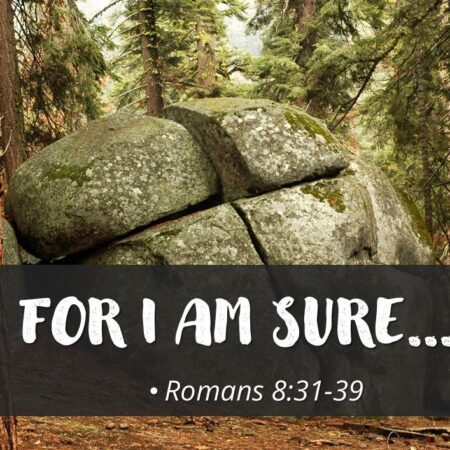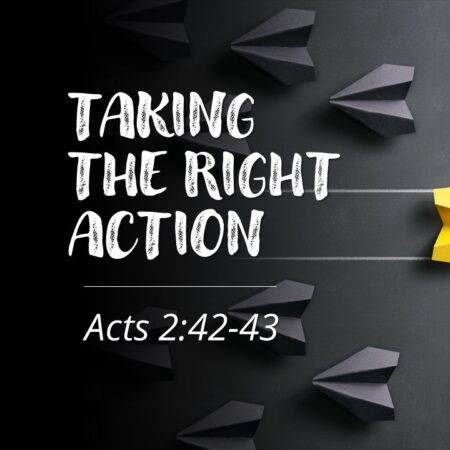Ryan Holiday is the author of a book titled: “The Obstacle Is The Way”
“There is an old Zen story about a king whose people had grown soft and entitled. Dissatisfaction with this state of affairs, he hoped to teach them a lesson. His plan was simple; He would place a large boulder in the middle of the main road, completely blocking entry into the city. He would then hide nearby and observe their reactions.
How would they respond? Would they band together to remove it? Or would they get discouraged, quit, and return home?
With growing disappointment, the king watched as subject after subject came to this impediment and turned away. Or, at best, tried halfheartedly before giving up. Many openly complained or cursed the king or bemoaned the inconvenience, but none managed to do anything about it.
After several days, a lone peasant came along on his way into town. He did not turn away. Instead he strained and strained, trying to push it out of the way. Then an idea came to him; He scrambled into the nearby woods to find something he could use for leverage. Finally, he returned with a large branch he had crafted into a lever and deployed it to dislodge the massive rock from the road.
Beneath the rock were a purse of gold coins and a note from the king, which said:
“The Obstacle in the path becomes the path. Never forget, within every obstacle is an opportunity to improve our condition.”
As Susan Perlman in an article she wrote for “Jews for Jesus” publication said:
“One might ask, “What do we need pain for? Couldn’t we accomplish the same things with pleasure?”
The answer has to be that in pleasure we focus on ourselves and our feelings and our perceptions, which makes us to be mindful of ourselves and our will to be pleased; whereas pain helps us to focus outside of ourselves, to reach beside ourselves, to find out what’s there. Pleasure tends to make one self-centered, whereas pain tends to make a more noble person, other-centered and, hopefully God-centered.
A crisis becomes an occasion for declension or advance. A self-centered person in a crisis can become more self-centered and wallow in self-pity. God-centered or God-seeking persons can be propelled forward in their quest for meaning.
It is important to know that we are not helpless and we are not hopeless. We can choose to decide how we will deal with pain. We cannot choose whether or not we will have pain, but we can decide whether or not we will ALLOW PROBLEMS TO AFFECT US.
To live is to endure the pressures of life. But we can decide if we are going to let these things press us down or if we are going to let them lift us up.”
David Aikman wrote a book titled” GREAT SOULS” and in it he writes:
“I have always personally been inspired by the lives of great people. It is hard not to be energized by the stories of how individuals have risen above adversity or suffering or have maintained a purity in the face of great temptation. Our age, with its habit of instantly judging a man or woman’s life based on the fragmentary and proverbial sound bite, is often impatient with detail, nuances, depth.”
Chuck Swindoll writes about Joseph:
“Here is one on the list of God’s “greats”…….a life lived for His glory and, equally significant, though he was terribly mistreated, lived high above the all-too-common reactions of rage, resentment, and revenge. Here is one who deliberately chose to overlook unfair offenses, to overcome enormous obstacles, and model a virtue that is fast becoming lost in our hostile age – forgiveness.”
At the outset, Joseph’s life showed little promise – a simple shepherd, twelfth of thirteen children, a dreamer hated by his brothers. So how did he become a man so extraordinary that Moses spent almost fourteen chapters in the Book of Genesis telling his story? Where did Joseph get the qualities of integrity, leadership, and godliness in such measure that they took him from the pit of slavery to prime minister of Egypt?”
Through Joseph
• God explained dreams
• Revealed the future
• Saved Egypt and Israel from starvation
• Demonstrates the depth of love God has for all of us.
Paul is right:
For I am sure that neither death nor life, nor angels nor rulers, nor things present nor things to come, nor powers, not height not depth, nor anything else in all creation, will be able to separate us from the love of God in Christ Jesus our Lord.
"Pain" Tagged Sermons
Dallas Willard “The Allure of Gentleness”
Therefore; Christianity is false, since God is either not benevolent or not powerful, to which the presence of suffering testifies.
“God’s love is not a sentiment, but a well-reasoned devotion to the good or well-being of its objects. We have a terrible time understanding love, because we confuse it with desire. DESIRE AND LOVE ARE TWO UTTERLY DIFFERENT KINDS OF THINGS. Not only is desire not love; it is often OPPOSED to love.
Right action is the act of love, regardless of the desires of anyone involved.
Jeremy Bentham is his book: “Intro to the Principles of Morals and Legislation” writes:
“Nature has placed mankind under the governance of two sovereign masters, pain and pleasure. It is for them alone to point out what we ought to do, as well as to determine what we shall do. On the one hand the standard of right and wrong, on the other the chain of causes and effects, are fastened to their throne. They govern us in all we do, in all we say, in all we think; every effort we can make to throw off our subjection will serve but to demonstrate and confirm it. In words a man may pretend to abjure their empire; but in reality, he will remain subject to it all the while.”
Dallas Willard writes:
“It is only in the heat of pain and suffering, both mental and physical, that real human character is forged. One does not develop:
• courage without facing danger,
• patience without trials,
• wisdom without heart- and brain-racking puzzles,
• endurance without suffering
• temperance and honesty without temptations.
These are the very things we treasure most about people. Ask yourself if you would be willing to be devoid of all these virtues. If your answer is no, then don’t scorn the means of obtaining them.
The gold of human character is dug from torturous mines, but its dung and dirt are quite easily come by. And it should come as no surprise to us that in our time – the time of the great flight from pain, such virtues as these are conspicuous only by their absence.
I’m not saying that we should go looking for pain, so that we can develop character. This is not at all necessary. All we need to do is make an honest and thorough effort do discover what is right and wrong, good and bad, when we are convinced on these points, then simply go out and face life for what it is worth. There will be plenty of opportunity to develop character.”
C.S. Lewis in his book “The Problem of Pain” writes:
“It is a serious thing to live in a society of possible gods and goddesses, to remember that the dullest, most uninteresting person you talk to may one day be a creature which, if you saw it now, you would be strongly tempted to worship, or else horror and a corruption such as you now meet, if at all, only in a nightmare. All day long we are, in some degree, helping each other to one or the other of these destinations….
There are no ordinary people. You have never talked to a mere mortal. Nations, cultures, arts, civilizations – these are mortal, and their life is to ours as the life of a gnat. But it is immortals whom we joke with, work with, marry, snub, and exploit – immortal horrors or everlasting splendors……..
YOUR NEIGHBOR IS THE HOLIEST OBJECT PRESENTED TO YOUR SENSES.”


